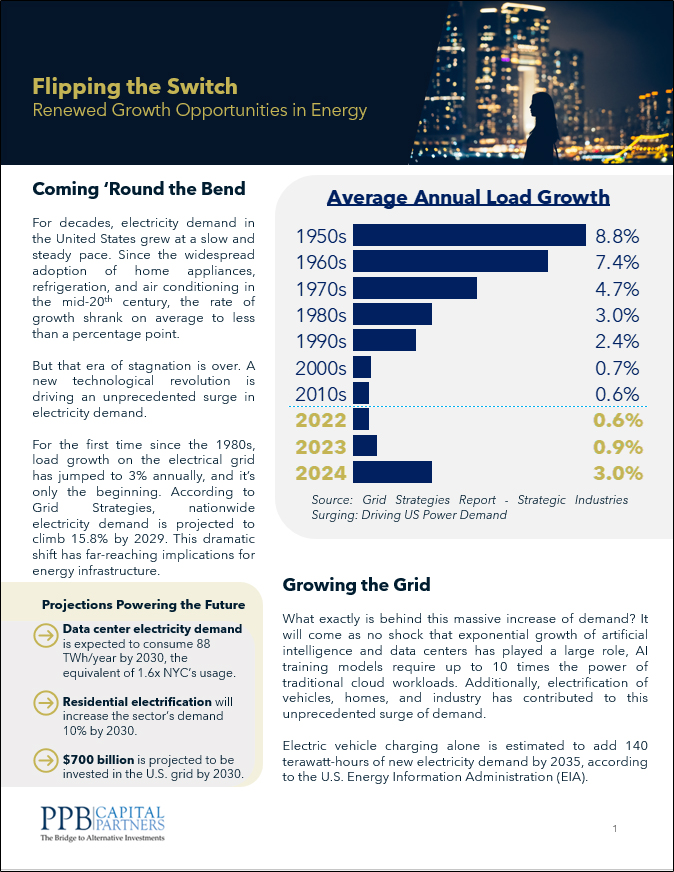
Uncorrelated Returns, Part 4: Focus on Catastrophic Natural Disaster Reinsurers
July 14, 2020
With the markets erasing nearly all of their March losses, the stark rebound in equity prices has been remarkable. Volatility has certainly picked up, but the disconnect between the expected (and realized, as I read about another bankruptcy this morning) economic impact of COVID-19 and the U.S. stock market’s rebound is almost incomprehensible. Is the market pricing in a vaccine or is the snap back a function of all of the fiscal and monetary stimulus that happens to coincide with an election year?
Regardless of the reason, the stock market has forged ahead and investors are left to ponder how to allocate (or reallocate) their assets. At PPB Capital Partners (“PPB”), we believe that increasing an investor’s alternative investment strategies allocation has only grown in importance. We continue to see the largest opportunity in private and distressed credit strategies. While the stimulus has pushed public valuations upward and provided a tail wind for the markets, the amount of remaining uncertainty for many aspects of the economy has tangible effects on private businesses. As such, companies borrowed all that was available to them, but the need for additional liquidity from private investors will be paramount before we return to pre-COVID consumer spending levels in areas such as travel, hospitality and leisure activities.
For investors seeking additional equity like exposures and diversification, one strategy that PPB continues to focus on is reinsurance. Catastrophic and natural disaster reinsurance has provided uncorrelated return streams to investors with equity like returns. Many investors soured to the asset class after two years of back-to-back storm activity in 2017 and 2018, which resulted in losses for investors. However, looking at long term trends the storm activity was not different than previous historical levels.
Reinsurance funds have the flexibility to invest in multiple different sectors of the reinsurance market. Some reinsurers are expected to experience significant losses in 2020 due to event cancellations as a result of COVID-19. Thus, we feel investors should consider funds that focus exclusively on catastrophic weather-related, natural disaster claims. Due to COVID related losses, the larger reinsurance firms with broader mandates have less capital to redeploy into natural disaster policies and therefore supply has been limited. Accordingly, premiums have increased significantly during this recent June/July renewal period.
Since inception in June of 2008, PPB’s reinsurance manager Pillar has shown a zero correlation to the S&P 500 and near zero (.08) correlation to the BarCap US Corporate HY Index. Most importantly, Pillar was positive every month of the first quarter of 2020’s market dislocation.
With markets again near all-time highs, and as we sit in a time of unprecedented economic uncertainty, the need for increased allocation to uncorrelated strategies and alternative investments has never been more evident. Strategies such as natural event focused reinsurance and private credit can provide investors with compelling investment opportunities and return steams that are completely independent from public financial markets.
For more information on alternative investment strategies, please contact me.
– Frank Burke, CFA, CAIA, Chief Investment Officer, PPB Capital Partners, 484.278.4017 Ext. 108



